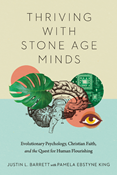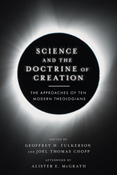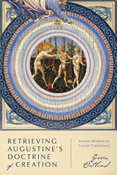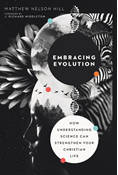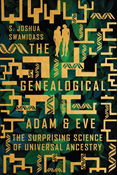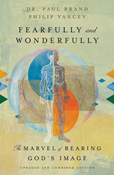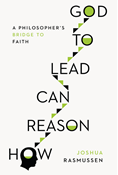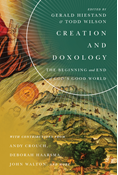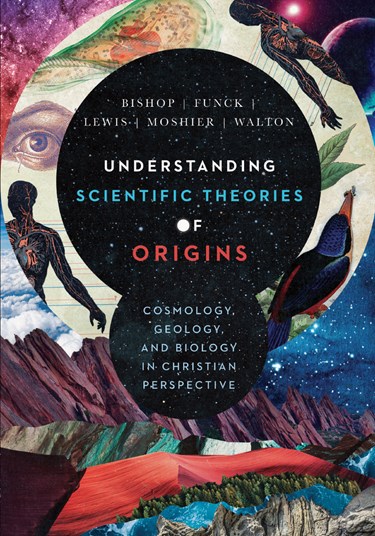
|
Understanding Scientific Theories of Origins
ebook
|
- Length: 688 pages
- Published: December 04, 2018
- Imprint: IVP Academic
- Item Code: 9164
- ISBN: 9780830891641
-
Other Retailers:
Amazon*
*affiliate partner
The question of origins remains a stumbling block for many. But just as the Psalmist gained insight into God's character through the observation of nature, modern scientific study can deepen and enrich our vision of the Creator and our place in his creation. In this often contentious field Bishop, Funck, Lewis, Moshier, and Walton serve as our able guides.
Based on over two decades of teaching origins together in the classroom, the authors present a textbook exploring mainstream scientific theories of origins in astronomy, cosmology, chemistry, geology, biology, physical anthropology, and genetics. While many authors engage origins from a Christian perspective, this is the first work offering a full-fledged discussion of the scientific narrative of origins from the Big Bang through humankind, from biblical and theological perspectives accessible to a lay audience.
Topics include
- Principles of biblical interpretation
- Close readings of relevant Genesis texts
- A comprehensive Trinitarian doctrine of creation
- Cosmic origins
- The geologic history of Earth
- The origin of life on Earth
- The origin of species and diversity of life
- Human origins
- New creation and creation care
- Science education
Rather than the familiar scenario where science and faith compete, this book seeks to diffuse tensions by taking the inspiration and authority of the Bible seriously while respecting and honoring God's revelation through creation. Understanding Scientific Theories of Origins gives the reader a detailed picture of the sciences of origins along with how they fit into the story of God's creative and redemptive action.
BioLogos Books on Science and Christianity invite us to see the harmony between the sciences and biblical faith on issues including cosmology, biology, paleontology, evolution, human origins, the environment, and more.
"Understanding Scientific Theories of Origins is a groundbreaking book. These engaging, field-tested materials, used over many years by outstanding faculty at a flagship Christian university, are sure to be an important new resource for Christian students. Understanding Scientific Theories of Origins reflects top-notch scholarship sensitively distilled to an accessible level, and it is uniquely comprehensive in its treatment of data from the physical and biological sciences, as well as philosophy, theology, and biblical studies. Understanding Scientific Theories of Origins is going to be on my short list of recommended resources in this important area. Highly recommended!"
"Understanding Scientific Theories of Origins is one of the clearest and most helpful articulations of the discussion on origins. The topics include frameworks for biblical interpretations, descriptions of interpretations by differing Christian traditions, the approaches and types of evidence used across scientific fields, and some of the best contemporary theological work that emphasizes Trinitarian ways of thinking and understanding. This book also draws on the insights of the last several decades of creation care theology. I recommend it for a broad range of audiences both because of its depth of understanding and its accessibility."
"According to the Bible, God created everything—the cosmos, the solar system, the earth, and life itself. Many Christians wrongly believe that science undermines that belief and so they avoid, or worse, attack science. Understanding Scientific Theories of Origins is a book that looks at the best mainstream science from a Christian perspective to show that such fears are unfounded. This book, born in the classroom, is a perfect textbook for colleges and also for all Christians who are interested in the question of how the Bible and science relate."
"This superbly designed textbook once again shows how foolish it is to think of 'warfare' when considering science in relation to Christian faith. The team of authors includes first-rate scientists and much-respected Bible scholars. Together they explain clearly, patiently, and with accessible language why modern believers have nothing to fear from established scientific research—and why orthodox Christian faith has so much to offer in clarifying what scientists discover. It is a book perfect for the classroom, but also full of insight for general readers as well."
"At a time when the world faces major existential questions including the impact of humans on the environment and the shape of the humanity's future (with the ability to profoundly alter ourselves through various forms of enhancement and gene editing), there is a profound need for faithful, cogent, and sensitive discussions of the relationship between scientific methods, discovery and advancement, and Christian theology. The issues touch on all the academic disciplines in the modern university. Hence, these discussions should begin as a foundation of pedagogical commitments, and to succeed well, ought to be truly interdisciplinary. This is no easy brief to meet and so it is rarely found leaving a yawning gap. This book fills that significant void offering us the benefit of the authors'—who represent an important range of disciplines—years of classroom, scholarly, and public engagement experience. It justly deserves to become a standard work in college courses seeking to integrate deep reflection on science and Christianity. We will all be the better for it."
CONTENTS
List of Figures
List of Tables
List of Sidebars
Abbreviations
Introduction
Part One: Getting Started on the Journey
1. Principles and Methods of Biblical Interpretation
2. A Comprehensive Doctrine of Creation and Implications for Scientific Study
3. Knowledge and Faith in Pursuing Origins Questions
4. Creation Through the Lenses of Science and Theology
Part Two: Cosmic Origins
5. Cosmic Origins: Genesis 1:1–2:4
6. Electromagnetic Radiation and the Scale of the Universe
7. The Expanding Universe
8. The Big Bang Model and Contemporary Cosmology
9. Lives and Deaths of Stars and Fine-Tuning
10. Biblical and Theological Perspectives on the Origins of the Universe
Part Three: Origin and Geologic History of Earth
11. Origin of the Earth and Solar System
12. Historical Roots of Geology: Catastrophism and Uniformitarianism
13. The Genesis Flood
14. The Rock Cycle and Timescales of Geologic Processes
15. Rocks of Ages: Measuring Geologic Time
16. Plate Tectonics: A Theory for How the Earth Works
17. Reading Earth’s History in Rocks and Fossils
18. Biblical and Theological Perspectives on Earth History
Part Four: Origin of Life on Earth
19. From Spontaneous Generation to Abiogenesis
20. Prebiotic Chemistry: Preparing the Primordial Soup
21. Biological Information: Proteins and Nucleic Acids
22. Alternative Scenarios for Life's Origin
23. Biblical and Theological Perspectives on the Origin of Life
Part Five: Origin of Species and Diversity of Life
24. Development of the Theory of Evolution
25. The Modern Synthesis of Evolution
26. Exploring the Evidence about Evolution: Phylogeny and Fossils
27. Development of an Extended Synthesis of Evolution
28. Biblical and Theological Perspectives on the Origin of the Diversity of Life
Part Six: Human Origins
29. Human Origins: Genesis 2–3
30. Human Origins: Evidence from Physical Anthropology
31. Human Origins: Genomic Evidence
32. Biblical and Theological Perspectives on the Image of God
Part Seven: Concluding Postscript
33. Biblical and Theological Perspectives on New Creation, Creation Care, and Science Education
Glossary
Image Credits
General Index
Scripture Index




